Setting up an aquarium is a delightful endeavor, but it also comes with responsibilities, particularly regarding the health and well-being of its inhabitants. One crucial aspect of maintaining a healthy aquatic environment is investing in a reliable aquarium filter.
Aquarium filtration plays a vital role in maintaining water quality by removing physical and chemical impurities. It ensures a healthy ecosystem for fish, plants, and other aquatic organisms. Without proper filtration, waste and toxins accumulate, leading to poor water quality and potential harm to the inhabitants.
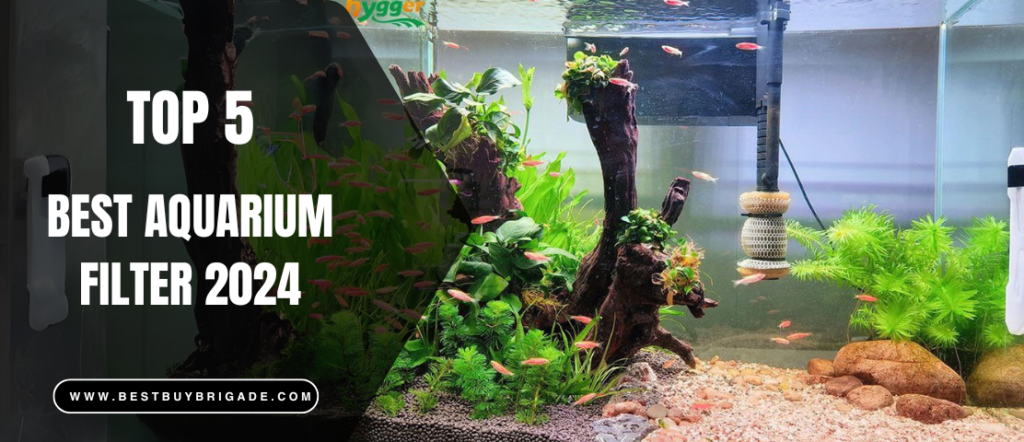
Types of Aquarium Filters:
Internal Filters:
Internal filters are compact and easy to install inside the aquarium. These products are appropriate for use in smaller tanks and offer both mechanical and biological filtration capabilities.
External Filters:
External filters offer efficient mechanical and biological filtration and are placed outside the aquarium. They are ideal for larger tanks and can handle higher volumes of water.
Canister Filters:
Canister filters are powerful filtration systems that sit outside the tank and provide excellent mechanical, chemical, and biological filtration. They are popular among experienced aquarists for their superior filtration capabilities.
Sponge Filters:
Sponge filters utilize sponge media to trap debris and provide biological filtration. Aquarists often use sponge filters in breeding tanks and quarantine setups because they provide gentle filtration for fish.
Power Filters:
Power filters, also known as hang-on-back filters, are versatile and easy to install. They hang on the back of the aquarium and provide efficient mechanical and chemical filtration.
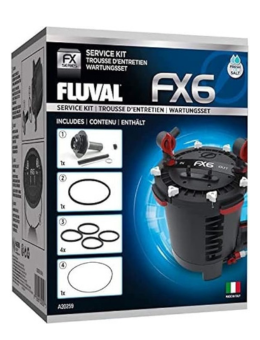
The Fluval FX6 Canister Filter is highly regarded for its exceptional filtration capabilities and quiet operation, making it an excellent choice for large aquariums.
Its maintenance kit includes essential components such as a Magnetic Impeller Assembly with Bushing, O-Ring, and Bushing Tool, a Motor Seal Ring, Top Cover Click-Fit O-Rings, and an O-Ring for the Filter Lid (Item #A20206, #A20207, #A20212, and #A20210 respectively).
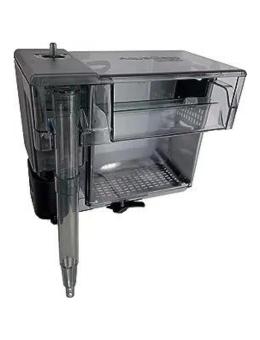
The aquarium filtration system described offers superior contact time with filter media and an energy-efficient pump, resulting in lower operating costs. Its quick and easy installation process makes it convenient for aquarium owners.
Regular maintenance is recommended, with a suggested cleaning interval of every two weeks to ensure maximum operation and efficiency.convert in active voice.
This filtration system provides optimal mechanical, chemical, and biological filtration, thanks to its inclusion of AquaClear Foam, Activated Carbon Filter, BioMax, and Cycle Guard components. With a filtration volume up to 7 times larger than comparable fish tank filters, it promises superior water quality for aquatic environments.
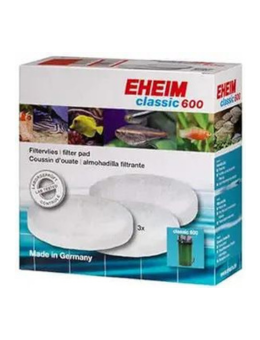
The Completely Neutral Pad is designed for use in the Classic Canister 600 filter. Its fine, phenol-free synthetic structure efficiently traps tiny particles of dirt, ensuring cleaner aquarium water. Each set includes three pads for convenient replacement.
Specifically intended for the Classic Canister 2217, it’s recommended to use this pad as the last layer in your filtration setup to achieve optimal performance.
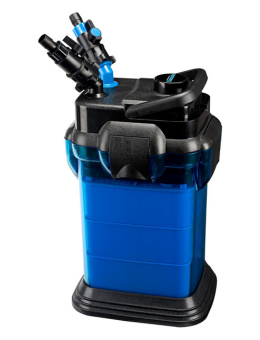
The CASCADE 1000 CANISTER FILTER effortlessly delivers crystal clear water throughout the tank, making it an ideal choice for aquariums up to 100 gallons. With a water cycling rate of 265 Gallons per Hour.
it ensures efficient filtration for both freshwater and saltwater fish tanks, as well as water-based turtle habitats.
Featuring state-of-the-art functionalities, this Canister Filter boasts a push-button primer for simple and quick priming, along with two independent valve taps that rotate 360°, facilitating easy maneuvering, even in tight aquarium cabinets. Its 3 stackable, large-capacity media baskets allow aquarists to customize filtration according to their needs.
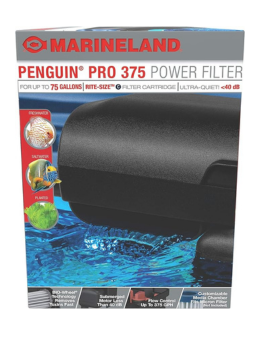
The Marineland Penguin Power Filter features Bio-Wheel technology, providing efficient wet/dry biological filtration for aquariums. With multi-stage filtration, it offers mechanical, chemical, and biological filtration to maintain a clean aquatic environment.
The filter is compatible with Marineland Rite-Size C Filter Cartridges, ensuring easy replacement. It comes in six sizes, ranging from 100 to 450, suitable for different tank sizes up to 90 gallons. The filter also features flow control, allowing for adjustable flow rates up to 375 gallons per hour.
Factors to Consider When Choosing Aquarium Filters:
Tank Size: Consider the size of your aquarium when selecting a filter. Larger tanks require more powerful filters to maintain water quality effectively.
Filtration Capacity: Evaluate the filtration capacity of the filter based on the bio-load of your tank. Choose a filter that can handle the waste produced by your aquatic inhabitants.
Maintenance Requirements: Take into account the maintenance needs of the filter. Some filters require frequent cleaning and media replacement, while others are more low-maintenance.
Conclusion:
Investing in the best aquarium filter is crucial for maintaining a healthy aquatic environment. Consider factors such as tank size, filtration capacity, and maintenance requirements when choosing a filter. With the right filter in place, you can enjoy a thriving aquarium ecosystem for years to come.
FAQs
It depends on the type of filter and the bio-load of your tank. Generally, it’s recommended to clean mechanical filters every 2-4 weeks and perform maintenance on biological filters as needed.
Yes, using multiple filters can enhance filtration efficiency, especially in larger tanks or those with high bio-loads.
Yes, even small aquariums benefit from filtration to maintain water quality and provide a healthy environment for fish and other aquatic life.
Regular observation of water clarity and quality, along with monitoring fish behavior, can indicate whether your filter is functioning effectively.
It’s best to use a filter specifically designed for saltwater aquariums, as they are optimized to handle the unique challenges of marine environments.
